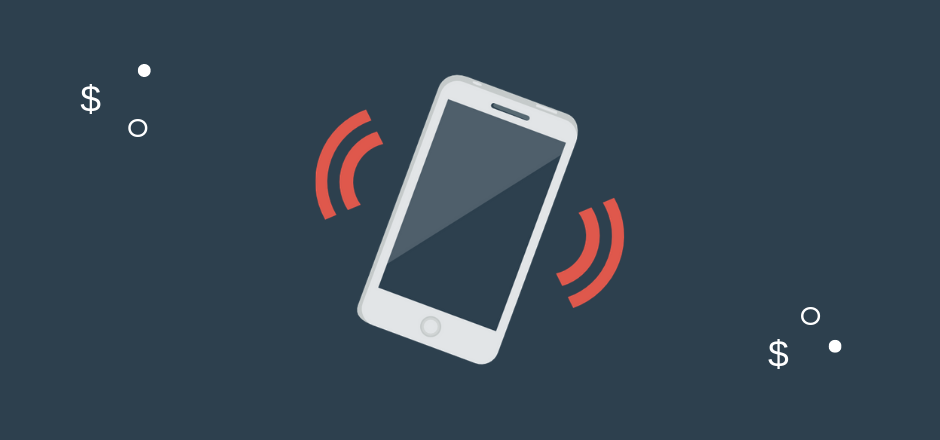How to Sue a Debt Collector
If you have an account in collections, you’re probably familiar with the aggressive tactics of debt collectors. The endless mail and daily phone calls may be legal, but debt collectors must follow the rules as described in the Fair Debt Collection Practices Act (FDCPA).
In this article, you will discover what those rules and learn how to sue a debt collector if they break them.

The Fair Debt Collection Practices Act
The FDCPA is a piece of legislation that was created to protect consumers against third-party debt collectors. The law makes specific stipulations as to what hours of the day debt collectors can attempt to contact people and how many times they can have contact. It’s important to note that the act only applies to third-party collectors, like debt collection agencies. The actual owner of the debt, or the private party you owe the money to, is not necessarily held to the terms of the FDCPA.
The legislation specifically states:
- The agency handling your debt must be able to prove you owe the debt.
- Debt collectors may not call you before 8 am.
- Debt collectors may not call you after 9 pm.
- You may only be called before 8 a.m. or after 9 p.m. if you gave explicit permission (e.g., to make a time to talk before or after your work hours).
- You can be contacted at home or at work. However, debt collectors must stop calling your work immediately if advised to stop by you. You can inform them verbally or in writing.
- A debt collector must stop calling your home if you ask them to; this notice must be in writing.
- A debt collector may attempt to call relatives or associates for your contact information, but they can’t disclose their purpose or status as a debt collector.
- Debt collectors may only call each third-party (e.g., relatives) once.
- Debt collectors may not harass you, make physical threats, or threaten to have you arrested over your debt.
- Debt collectors can’t threaten to sue you unless their agency actually has plans to engage in legal action (no empty threats to intimidate you). They also can’t threaten to sue you if the debt has passed the state’s statute of limitations for a lawsuit.
In the event a debt collector violates one of these rules, you have one year to file a suit against them for damages. You have the right to collect a judgment that includes your attorney fees as well as damages.
How to Sue a Debt Collector
In order to sue your bill collector for an FDCPA violation, you must document your experiences. You should take notes about every contact whether you feel you have grounds for a suit or not. Documentation ensures you have the evidence needed to back up your claims later on.
Start by writing down the date and time of any received telephone calls. Include whether or not you were at work, if you were on your cell phone, or if you were at home. Record the name and/or identification number of the person making the actual call. Keep everything you receive from the debt collection agency, including voicemails and actual letters, for at least the first year.
The next logical step is to contact a lawyer. Discuss the possibility of a lawsuit. If you have a case, your lawyer will help you to file in the California court system. You won’t make a lot of money from this type of case, but it may still be worthwhile depending on the nature of the transgression. Unless you can prove some sort of damage, like losing your job because they harassed you at work, the maximum you will receive from a state court is $1,000 and legal fees. You may also attempt to file a civil suit without a lawyer, but your reward will still be limited.
Suing your debt collector doesn’t absolve you of your obligation to pay your debt. They just become obligated and court-ordered to correct the amount owed if it was originally miscommunicated. You will still have to pay anything it can be proven you owe.
Is It Worth Suing?
This is something you have to determine on a case-by-case basis. Your lawyer should be able to help you to figure out if the time and effort involved is worth the expected payout. It may, in some instances, be more beneficial to have your lawyer present your evidence to the debt collector and try to get them to agree to a settlement. You may end up with more than a court would award, especially since the debt collector won’t need to pay their own lawyers to defend them in court.
What Else Can You Do?
Tired of debt collectors in general? Whether you opt to sue or not, you can also report FDCPA violations to the appropriate governing bodies. Consider the following:
- Federal Trade Commission (FTC) — This governing body is is responsible for regulating the actions of debt collectors. You can file online using the FTC’s Complaint Assistant.
- Consumer Financial Protection Bureau (CFPB) — This organization is responsible for handling all complaints consumers have against people they’ve done business with. The CFPB also accepts complaints online. They will in many cases work with you and the creditor to settle the issue.
- State Attorney General — Contact your state’s office to file a complaint. They generally do not respond to individual complaints, but they may take action against the debt collector if they receive several reports about the same agency.
Owing a debt doesn’t give your creditors or their collection agencies the right to harass you or treat you with a lack of dignity and respect. Do not be afraid to contact an attorney if you feel as though your debt collector is violating FDCPA rules. You may not have a case, but if you do, you may just find you are able to have part of your debt reduced.
Are you in search for a certified attorney to represent you?
Let us help you find one today!


